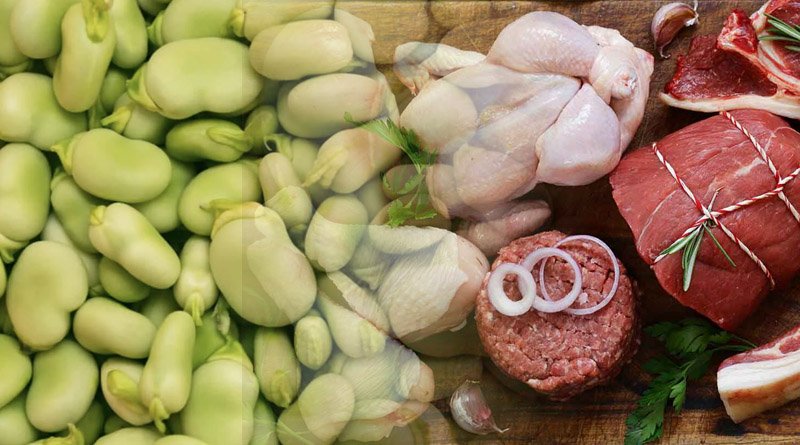The most important and widely used meat analogy is soybean, which is a cheap source of meat. Soybean is high in protein and carbohydrates but low in unhealthy fats.

Meat is a good source of protein, but we need a substitute for it. Protein is an important part of our physiological function. Meat contains essential nutrients, particularly protein, which is required for variation in the human body. As we all know, the world’s population is growing, and so is the demand for food , but its production is low in underdeveloped countries.
Meat prices are rising because of low production. It is estimated that we will require at least double the amount of meat in the near future that we currently produce. In order to meet the needs of the increasing population, it is difficult to increase production in developing countries.
Another important factor in the consumption of meat is religion. Pig’s meat is not eaten by Muslims, and Hindus do not eat cow’s meat. Cow madness disease is also a factor in reducing the use of meat. By taking these factors into account, we should be able to find a way to increase meat production, which is currently impossible.
So we’re looking for meat substitutes that also have low fat. The most important and widely used meat analogy is soybean, which is a cheap source of meat. Soybean is high in protein and carbohydrates but low in unhealthy fats.
The FDA confirmed that eating 25 g of soy protein per day may lower cholesterol and reduce the risk of a heart attack. This health claim has a strong market response. So, taking advantage of this opportunity, foods quickly infiltrated western cultures.
Soybeans have a variety of health benefits, including protection against heart disease, obesity, lowering blood cholesterol, reducing the risk of cancer, and increasing bone biomass. It has a lower formulation cost because it is less expensive than meat.
As meat prices rise and fats have a negative effect on health, all informed opinion emphasises the importance of reducing consumption of animal products and increasing intake of fibre, complex carbohydrates, and proteins such as soybean.
Soybean oil is more important than other animal-based oils due to its high linoleic content as well as its status as a vegetable oil. Because of its fatty acid composition, soybean oil is high in fat and easily digestible when compared to animal oil.
We can eat soybeans in a variety of ways, including tofu, soy meat (TVP-textured vegetable proteins), tempeh (which is similar to meat in chewiness and flavour) soybean milks, and soybean oil. Soy protein products have become increasingly popular because of their low price , high nutritional quality, and versatile functions.
Several products are currently available on the market that are successful as plant-based meat analogues and appear to provide a sufficient amount of protein to our diet as a meat substitute. Soybean is a good example of a plant analogy, and it is a cheap substitute for meat.
These are advantageous for people who are unable to consume traditional meat and meat products due to religious or ethical beliefs. It’s also beneficial for the people of developing countries to fulfil their nutritional needs by using this cheap substitute for meat.
